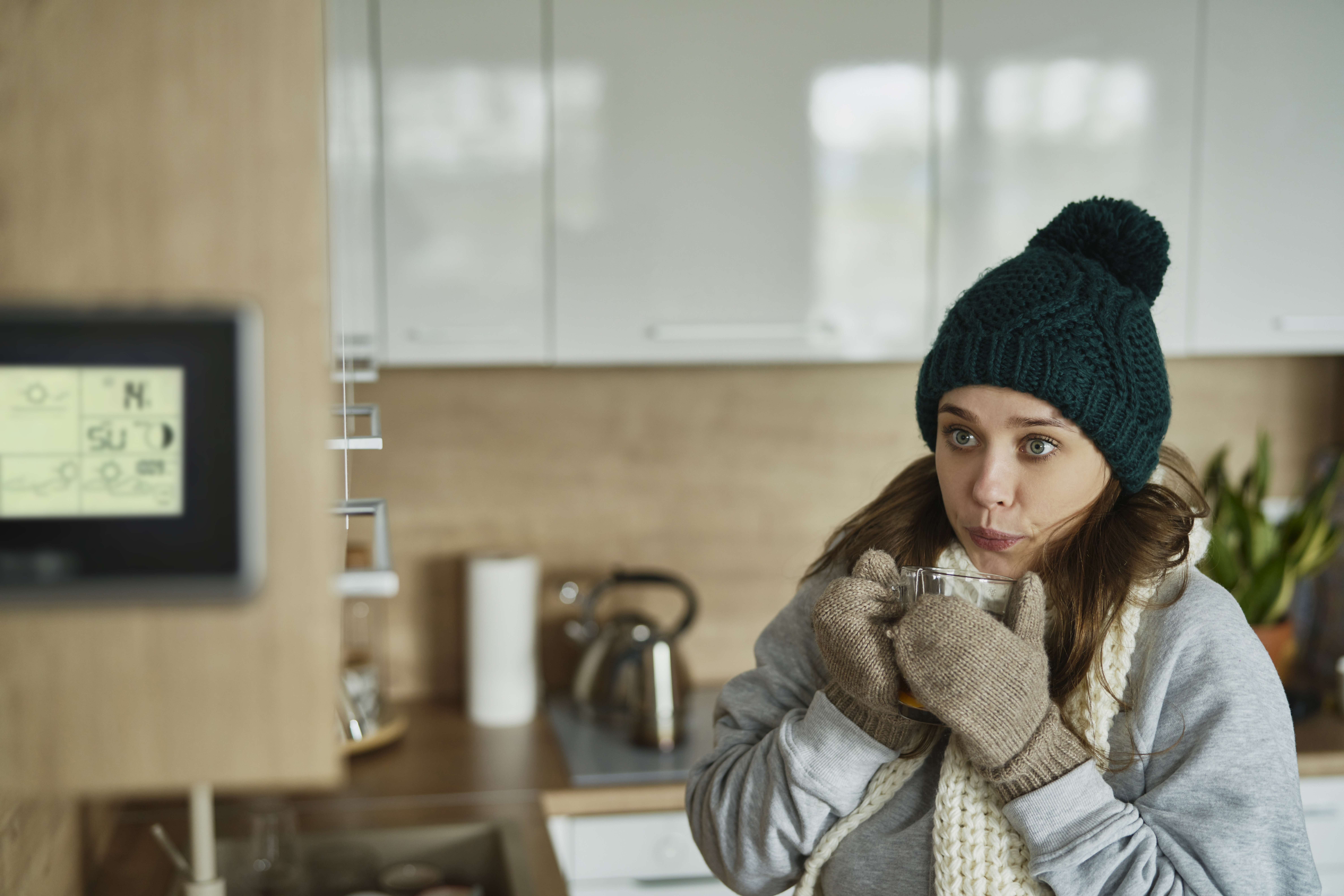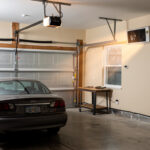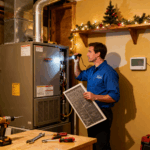
How to Keep Your Home Warm Without Sky-High Heating Bills
As temperatures drop, heating bills often rise and for many homeowners, winter can bring sticker shock when the utility bill
When temperatures hit record highs in the summer or plunge well below freezing in the winter, you expect your HVAC system to keep up. After all, its job is to maintain comfort no matter what’s happening outside. But during extreme weather, even the best heating and cooling systems can struggle to perform efficiently. If your home doesn’t feel as comfortable as it should or your energy bills suddenly spike you’re not alone. Here’s why your HVAC system may struggle during extreme weather and what you can do to help it run better when it matters most.
Every HVAC system is designed to handle a certain temperature range. When the weather goes far beyond that range like a 100°F heatwave or a -10°F cold snap your unit has to work overtime to maintain your desired indoor temperature.
For example, an air conditioner might be designed to cool a home effectively when outdoor temperatures reach up to 95°F. But once it hits 100°F or higher, the system’s cooling capacity drops. The same applies to furnaces and heat pumps during extreme cold they can only heat efficiently down to a certain point before losing performance.
This doesn’t mean your system is broken; it’s simply being pushed past its intended limits. When this happens, your HVAC will run longer cycles, use more energy, and still struggle to keep your home comfortable.
Your HVAC system’s performance is closely tied to how well your home retains conditioned air. During extreme weather, poor insulation or air leaks make it nearly impossible for your system to maintain stable indoor temperatures.
If hot or cold air seeps in through gaps in windows, doors, attics, or ductwork, your HVAC unit has to work harder to compensate. This not only puts extra strain on the system but also drives up your energy bills.
Improving insulation, sealing leaks, and ensuring your ducts are airtight can make a significant difference. Think of it like putting a lid on a pot when your home is properly sealed, it holds the desired temperature much more efficiently.
Extreme weather exposes any weakness in your HVAC maintenance routine. If your air filters are clogged or your condenser coils are dirty, your system won’t be able to move air efficiently. Restricted airflow means the unit must run longer and harder, which increases wear and tear.
A dirty filter can also cause the evaporator coil to freeze in the summer or reduce airflow from your furnace in the winter. Regularly changing your filters typically every 1 to 3 months and scheduling professional cleanings can prevent many of these issues before the next temperature spike or cold snap hits.
If your HVAC system is undersized for your home or nearing the end of its lifespan, it may simply not have the power to keep up with extreme temperatures. Older systems often lose efficiency due to worn components, refrigerant leaks, or outdated technology.
An undersized unit will run continuously in an attempt to reach the set temperature, but it may never get there. Meanwhile, an oversized system can short-cycle turning on and off frequently which wastes energy and wears out parts faster.
If you’ve noticed that your system can’t maintain comfort even after maintenance and repairs, it may be time to consider a replacement. A modern, properly sized HVAC system can handle extreme conditions far better than an older or mismatched one.
During extreme weather, the outdoor components of your HVAC system like the condenser or heat pump face direct exposure to the elements. In scorching heat, the condenser struggles to release heat efficiently, while in freezing temperatures, coils can freeze or frost over.
Keeping your outdoor unit clear of debris, leaves, snow, or ice helps airflow and prevents overheating or freezing. Some homeowners also use covers or awnings (without blocking ventilation) to shield the unit from direct sunlight or snowfall.
Extreme weather doesn’t just affect temperature it also impacts humidity. In summer, excessive humidity makes your air conditioner work harder to remove moisture, while in winter, dry air forces your heating system to run longer for the same level of comfort.
Installing a dehumidifier or humidifier can help balance indoor air quality, making your HVAC system’s job easier and your home more comfortable year-round.
When your HVAC system struggles during extreme weather, it’s not always a sign of failure, it’s often a sign that it’s doing its best under difficult conditions. However, small changes can make a big difference. Regular maintenance, proper insulation, clean filters, and an appropriately sized system all help your HVAC perform more reliably when temperatures soar or plummet.
If your system has been struggling to keep up, it may be time to call in a professional HVAC technician. They can assess your system’s efficiency, check for underlying issues, and recommend upgrades or repairs to ensure your home stays comfortable no matter what Mother Nature throws your way.

As temperatures drop, heating bills often rise and for many homeowners, winter can bring sticker shock when the utility bill

A garage heater is a game-changer during the colder months, keeping your workspace warm and comfortable. However, even the most

The holidays are a time for family, friends, and celebration but they can also put extra strain on your home’s